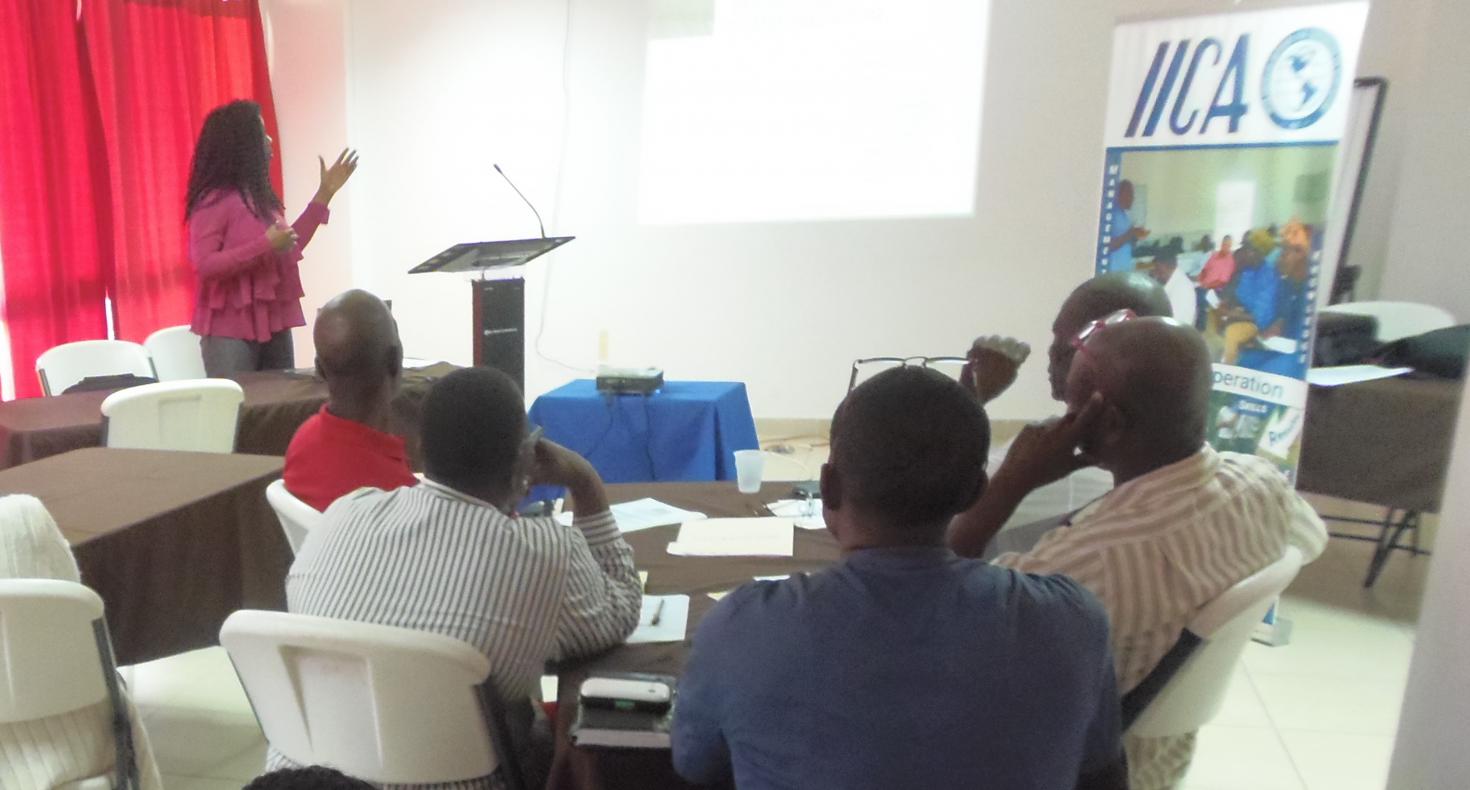IICA and FAO organized a workshop on Financial Accountability Management and Effective Communication to strengthen the members in these areas and promote their role in community development.

St George’s, Grenada. Producer groups are relevant for the development of small and medium-size farmers in rural communities. For example, producer groups can promote productivity and efficiency by sharing best production practices and foster synergies in production and marketing.
Both the Inter-American Institute for Cooperation on Agriculture (IICA) and the Food and Agriculture Organisation (FAO) have recognized this and have been initiating a number of programmes to assist the management of such groups.
With the use of a Capacity Assessment Tool, a number of management issues were identified among the groups. To this end, IICA collaborated with the FAO and organized a 2-day Workshop on Financial Accountability Management and Effective Communication for Producer Groups on November 21 and 22, 2017, respectively.
The objective being that those rural groups will be more capable of playing a meaningful role in the development of their members and communities as well as in reducing poverty, all to the development of the country.
Participants from four producer groups were trained in Financial Accountability Management and Effective Communication because those two areas were highlighted as the major weaknesses among the groups assessed.
The 2-day workshop was quite interactive, and the facilitators were able to capture the attention of the participants through face-to-face discussions and classroom-type activities that helped enforced the learning outcomes. At the end of the Financial Accountability and Management session, participants were able to differentiate between a balance sheet, a cash flow statement, and the types of information recorded in each.
Similarly, at the end of the Effective Communication session, the participants from each of the groups were able to identify the phases and steps in developing a communication plan for their groups. Building identity and culture was one of the activities that energized the Workshop and participants have unanimously decided to continue transferring what they have learnt by developing slogans and Facebook pages with their group members.
More information: derek.charles@iica.int











